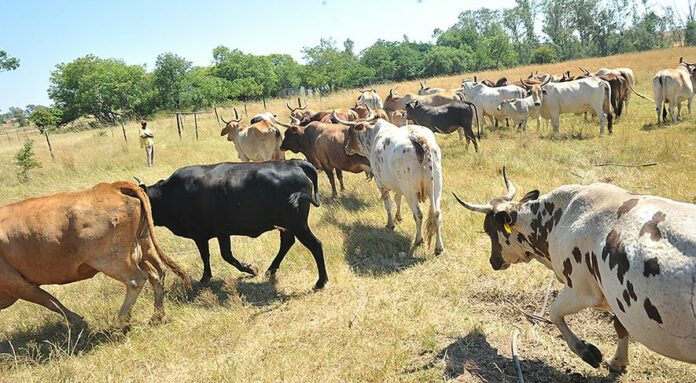A new agricultural grouping that dramatically defected from the African Farmers Association of South Africa (Afasa) is proposing radical measures to accelerate land reform, including the establishment of financial institutions to assist small-scale farmers, who are predominantly black.
“Land ownership is still skewed and it cannot be that black people are beggars in the land of their ancestors.
“Land prices in certain areas and provinces are artificially inflated. White lanowners are aware that the government does not have the ability to buy land at exorbitant prices,” Ismail Motala of the Deciduous Fruit Development Chamber told Sunday World in the aftermath of the formation of the Black Agri Commodities Federation.
Motala added that the argument often canvassed by white commercial farmers that state land should be expropriated was naive.
“If state land was good enough for agriculture, with access to water, this land would have already been farmed by those that have been historically advantaged,” he said.
The organisation said it wanted a proper plan, including timelines, to accelerate land reform, which will benefit black emerging farmers and rural communities.
The proposals would be canvassed at the next ANC elective conference in December.
In an unprecedented move, this week, six key affiliates of Afasa staged a walkout at the annual elective general meeting of the 10-year-old agricultural organisation at Durban’s International Convention Centre.
At the heart of the schism is, despite contributing a larger amount of money to run Afasa’s affairs, the commodities were sidelined in the national executive committee, the key decision-making body of the organisation.
But what broke the camel’s back were disagreements over the amendments to the organisation’s constitution, which would have made sure that the commodities have a say in the running of the organisation.
The affiliates argued the amendments should have been adopted during the sitting, but their call was rejected on the grounds that provinces needed to consult their constituencies before any amendments can be effected.
But the grouping led by the South African Farmers Development Association (Safda) cried foul, accusing the organisation’s top bosses of delaying tactics.
They were joined by the African Poultry Producers, National Emerging Red Producers Organisation (Nerpo), South African Grain Farmers Association and the African Game Ranchers Association.
Aggrey Mahanjana of Nerpo said there was a mammoth task ahead, especially relating to the opening of the market in the agricultural value chain for black farmers to thrive.
“We will be putting a lot of pressure on government to establish banks that will be more lenient towards small-scale farmers. It must be a mixture of financial products, production finance and the financing of infrastructure for farms.”
He lamented that most emerging black farmers lack cashflow to run their farms, adding that the apartheid government unapologetically helped white farmers.
The latest developments have raised fears that the breakaway could lead to the demise of Afasa, which is also a product of a breakaway.
It was formed in 2011 when aggrieved black farmers from the National African Farmers Union of South Africa (Nafus) jumped ship to form their own independent organisation.
Follow @SundayWorldZA on Twitter and @sundayworldza on Instagram, or like our Facebook Page, Sunday World, by clicking here for the latest breaking news in South Africa. To Subscribe to Sunday World, click here



